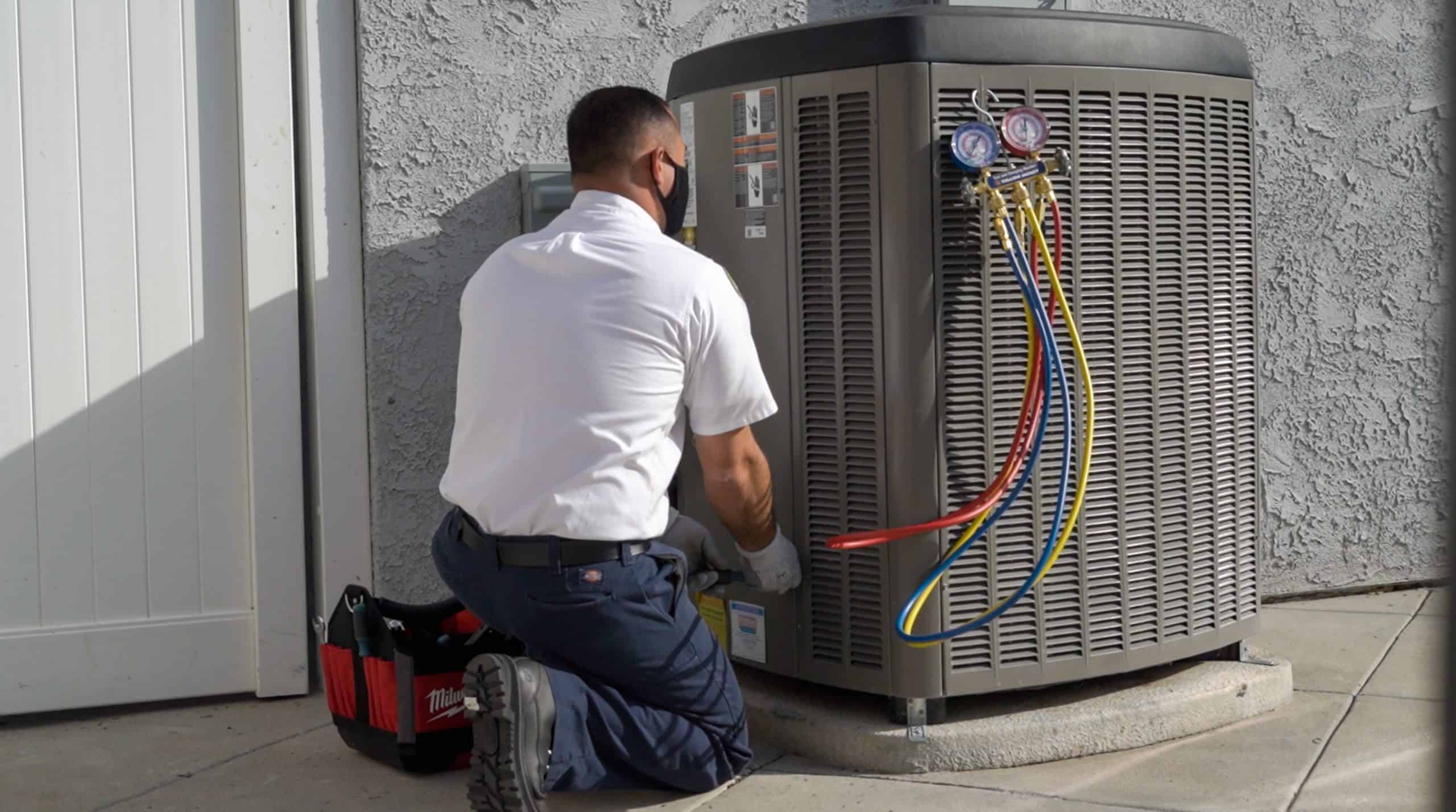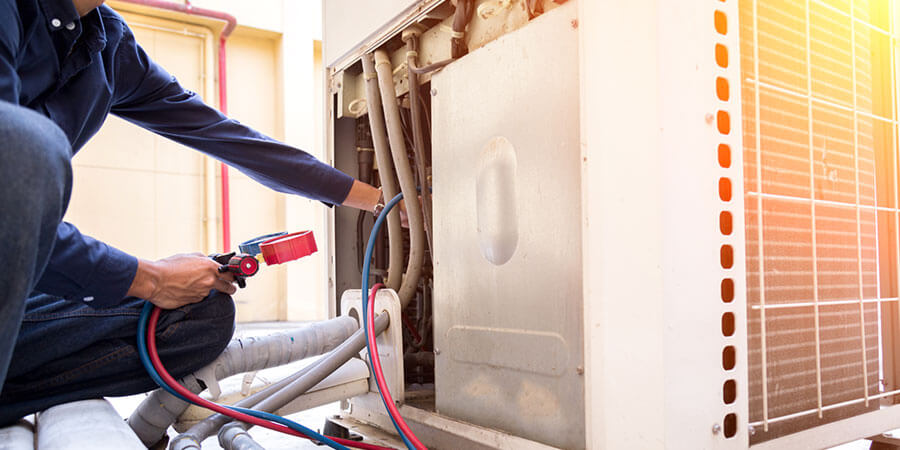Eco-Friendly Systems Installed by DMAKS HVAC Experts.
Wiki Article
Exactly How to Pick the Right Heating And Cooling System for Your Needs
Selecting the ideal heating and cooling system is a crucial choice that calls for mindful consideration of numerous variables. Begin by evaluating your home's size, layout, and unique requirements, as these aspects dictate the essential capability and configuration of the system. In addition, developing a budget plan that encompasses installment and lasting operational costs is vital. As you evaluate your choices, comprehending power effectiveness scores and the ramifications of your neighborhood climate will play a considerable duty in your selection. The myriad of system types available can complicate this process, leading one to ask yourself which path eventually leads to optimum comfort and performance.Examine Your Home Size
Analyzing your home dimension is a vital first action in choosing the suitable cooling and heating system. The dimension of your home straight influences the cooling and heating ability needed for efficient climate control. A HVAC system that is too small will certainly struggle to maintain comfortable temperatures, resulting in boosted energy consumption and endure the system. Alternatively, a large system can cause short cycling, poor moisture control, and inefficient procedure.
To precisely assess your home dimension, measure the square video footage of each area, considering aspects such as ceiling elevation and the design. Furthermore, consider the insulation high quality and the number of windows, as these elements affect thermal efficiency. Homes with open flooring strategies may require different system configurations compared to those with many divided rooms.
Using the Manual J load computation approach can provide an extra accurate estimate of your a/c needs. This technique accounts for various factors, including regional environment, solar gain, and occupancy patterns. By very carefully assessing these facets, you can make certain that your selected cooling and heating system is suitably sized, leading to improved convenience, energy performance, and long life of the tools.
Determine Your Budget
Identifying your budget is a critical action in the a/c system choice process, as it establishes the parameters for your choices - DMAKS HVAC. A HVAC system is a significant investment, and comprehending your economic restrictions will help limit options that fit within your methodsBegin by evaluating not only the initial purchase price yet also setup expenses, which can differ dramatically depending upon the complexity of the project. Additionally, think about ongoing expenses such as maintenance, fixings, and energy consumption. A system might appear inexpensive initially but can result in higher expenses over time if it is less efficient.
It is recommended to allot a contingency fund for unanticipated expenses that might arise during installation or initial system modifications (DMAKS HVAC). Furthermore, discover financing alternatives or refunds that might be available, as these can reduce the problem of ahead of time costs
Eventually, having a clear spending plan permits you to engage with HVAC specialists more effectively, guaranteeing you obtain tailored recommendations that lines up with your economic objectives and home needs. By being thorough concerning your budget plan, you can make informed decisions that enhance comfort without compromising financial security.
Evaluate Power Performance
Power effectiveness plays a crucial function in the overall performance and cost-effectiveness of your cooling and heating system. When picking a system, it is important to consider its power effectiveness scores, as these numbers straight affect your utility bills and environmental footprint. Try to find systems with a high Seasonal Power Effectiveness Proportion (SEER) for cooling and a high Yearly Fuel Utilization Performance (AFUE) Going Here ranking for home heating. Higher scores indicate higher effectiveness, indicating even more comfort for less energy consumption.Additionally, consider the Energy Star qualification, which signifies that the system fulfills rigorous effectiveness standards established by the Epa. Purchasing a Power Star-rated a/c system can bring about considerable cost savings in time, particularly in locations with severe temperature level fluctuations.
One more factor to review is the system's size and capability. A large or small device can cause inadequacy and raised power expenses. DMAKS HVAC. Appropriate sizing, usually determined via a Manual J tons estimation, makes certain that the system runs at ideal efficiency

Take Into Consideration Environment and Environment
When choosing a cooling find more information and heating system, it is vital to consider the regional environment and ecological problems, as these variables dramatically influence the system's efficiency and efficiency. Various areas experience differing temperature level extremes, humidity levels, and seasonal modifications, every one of which impact home heating and cooling down needs.
Additionally, neighborhood environmental factors, such as air quality and prospective allergens, need to educate your option. Equipments outfitted with advanced purification modern technologies can help minimize toxins and supply cleaner air. Additionally, take into consideration the power sources available in your location-- some a/c systems are much more effective when powered by gas or renewable resource resources.
Eventually, aligning your HVAC system choice with your regional climate and ecological factors to consider will bring about boosted convenience, boosted performance, and reduced energy costs.
Explore System Types and Attributes
As property owners seek to optimize comfort and performance, discovering the various sorts of heating and cooling systems and their unique attributes ends up being crucial. The main sorts of a/c systems consist of central air conditioning, heatpump, ductless mini-split systems, and heating systems. Each system supplies unique advantages tailored to various needs and preferences.Central air conditioning systems give uniform air conditioning throughout a home, making them suitable for bigger areas. Heatpump act as both heating and cooling services, utilizing electricity to move heat, which can lead to reduced power costs. Ductless mini-split systems are becoming increasingly preferred as a result of their adaptability and convenience of installment, permitting homeowners to regulate the temperature in specific rooms without considerable ductwork.

Conclusion
To conclude, choosing the suitable a/c system demands careful consideration of different aspects, consisting of home size, budget restraints, energy performance, local climate, and readily available system types. A detailed assessment of these aspects makes sure optimum comfort and cost-effectiveness. By following an organized technique, homeowners can make enlightened decisions that line up with their details requirements and choices, ultimately bring about improved indoor air quality and power cost savings.Report this wiki page